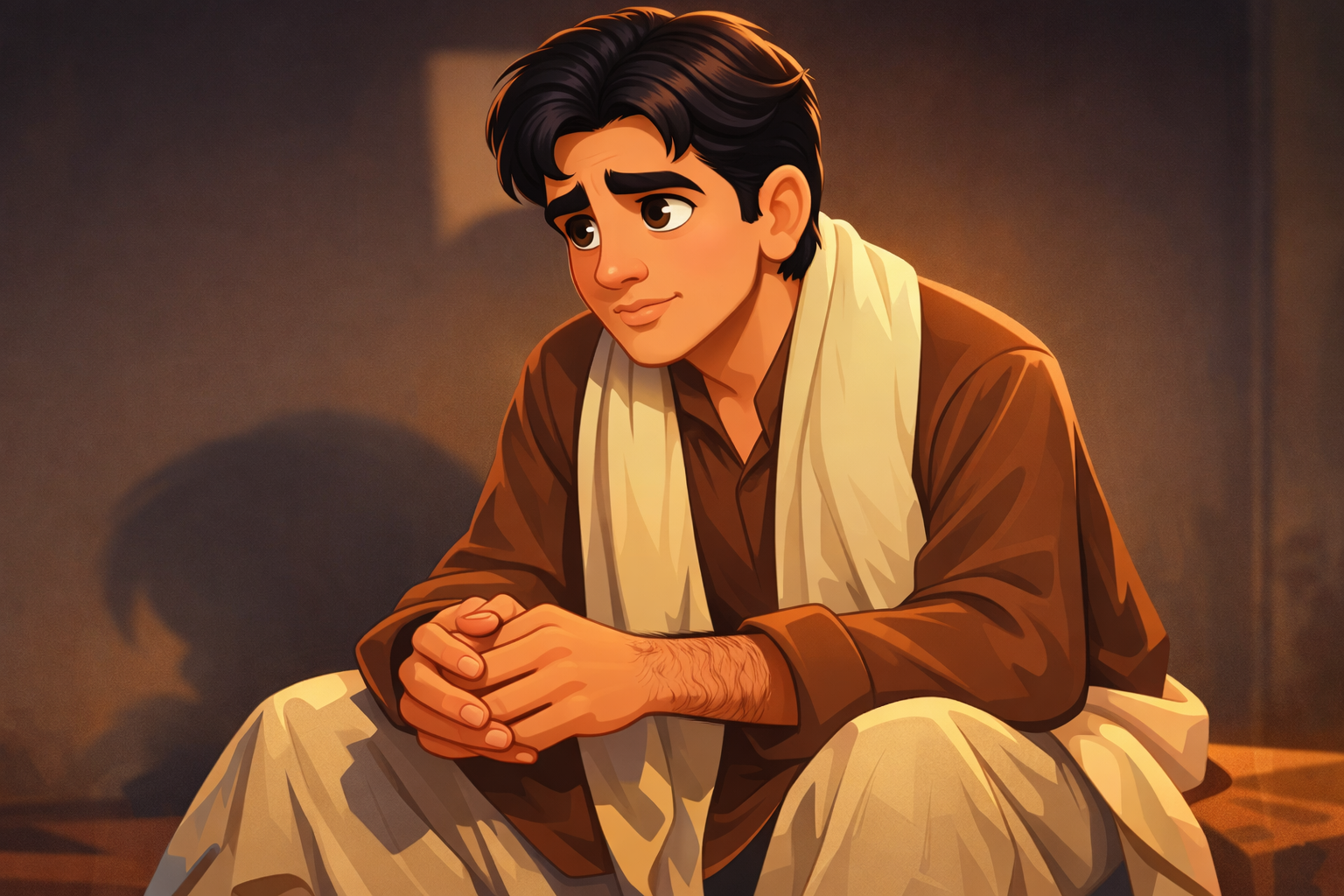Dilip Kumar was born Mohammed Yusuf Khan on December 11, 1922, in Qissa Khwani Bazaar, Peshawar — the “Street of Storytellers.” It was a fitting birthplace for a boy who would one day become one of the greatest storytellers of Indian cinema.
When he was a child, his family moved to Bombay. There, Yusuf grew up selling fruit from his father’s orchards, playing football, and finding his way through a bustling, changing city.
Becoming Dilip Kumar
Fate intervened in 1943 when Devika Rani, the head of Bombay Talkies, spotted him and offered him a role in Jwar Bhata. He adopted the screen name Dilip Kumar — and a legend was born.
His first few films went unnoticed, but with Jugnu (1947), audiences saw something new: a quiet intensity, a hero who spoke with his eyes as much as with his words.
❝ Acting is not about showing, it is about feeling.❞
The Rise of the Tragedy King
Through the late 1940s and 50s, Dilip Kumar transformed the Hindi film hero. In Shaheed, Mela, Deedar, and Devdas, he became the face of unfulfilled love and heartbreak.
He brought method acting to Indian cinema long before it had a name — living the pain of his characters, sometimes so deeply that he had to take breaks to recover emotionally.
❝ It was not easy to be Devdas. You live with the pain, you carry it home.❞
But Dilip Kumar was more than just tragedy. He could make audiences laugh (Azaad), charm (Kohinoor), and inspire (Leader).
The Historical Epic
In 1960 came Mughal-e-Azam, the film that would immortalize him as Prince Salim. The story of forbidden love between Salim and Anarkali became one of Indian cinema’s grandest sagas.
❝ Anarkali, hum tumhe jeene nahi denge, aur marne nahi denge.❞
(Anarkali, we will not let you live, nor let you die.)
With his understated performance, Dilip Kumar turned what could have been melodrama into poetry — making Salim both royal and heartbreakingly human.
A Mentor and a Statesman
By the 1970s, Dilip Kumar shifted to more mature roles, sharing screen space with younger stars like Amitabh Bachchan. Films like Shakti and Karma showed his quiet power as an actor — restrained, dignified, magnetic.
Off screen, he served as a Member of Parliament in the Rajya Sabha, spoke fearlessly on national issues, and became a cultural ambassador for Indian cinema.
❝ Cinema should have a purpose beyond entertainment — it should inspire.❞
The Final Curtain
Dilip Kumar’s last film was Qila in 1998, after which he retreated from public life. In his later years, he received the Dadasaheb Phalke Award, the Padma Vibhushan, and Pakistan’s Nishan-e-Imtiaz — a rare honor for an Indian artist.
He passed away on July 7, 2021, at the age of 98, leaving behind not just films, but an entire acting vocabulary that generations of actors would learn from.
The Legacy of Yusuf Saab
To fans, he was “Tragedy King.” To the industry, he was “The First Khan.” To his peers, he was simply “Yusuf Saab,” a man who redefined what it meant to act — not to perform, but to feel.
❝ When you see me on screen, you are not supposed to see Dilip Kumar. You are supposed to see the character.❞
This is Dilip Kumar — a story of a boy from Peshawar who carried the sorrows, joys, and dreams of a nation on his shoulders and gave them back in the language of cinema.
❝ I learned early that acting is not about expression alone — it is about truth.❞
❝ I am an ordinary man with extraordinary opportunities.❞
❝ Each role took something out of me, but gave me a little more depth as a human being.❞
❝ Awards do not make me great. The love of people does.❞
